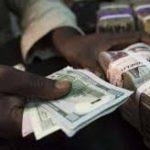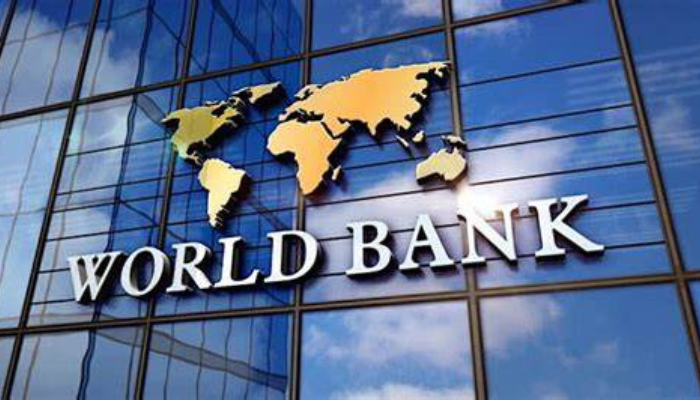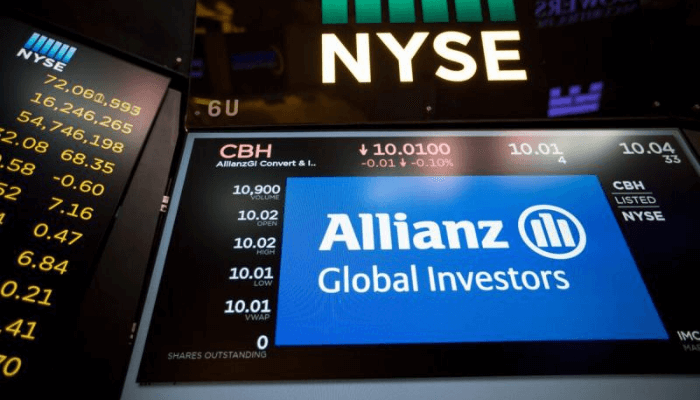After 16 months of an unrealistic currency peg, leading to a wide disparity between the official exchange rate and the prevailing market rate, 73 year-old President Muhammadu Buhari finally threw in the towel on defending the naira.
A motley crew of investors, economists and analysts are cheering the adoption of a flexible exchange rate system by the Central Bank of Nigeria (CBN) and are certain that with the hard currency peg out of the way, foreign portfolio investors are set to make a comeback.
Africa’s largest economy has been hit on several fronts. Inflation quickened to a six year high in May, printing at 15.6 percent in the month of May, while GDP growth rate contracted 0.36 percent, a decade low.
Capital controls imposed by the Central Bank which forced manufacturers to source dollars at an exorbitant black market rate of between N320 and N350 made it difficult for them to source raw materials for the purpose of production.
However, with the new forex framework which took effect yesterday, policy makers are sending a global message that it has succumbed to market forces to determine exchange rates.
The Abuja-based bank selected a group of around 10 primary dealers through which the naira will be traded. Godwin Emefiele, governor of the apex bank said there will only be one official exchange rate and the bank will intervene in the market to buy or sell foreign exchange as the need arises.
Analysts’ anticipate that a flexible exchange rate will invigorate investors’ confidence in the country’s equity market. This may have been validated, as the stock market continues on an upward swing.
Last week Friday, two days after the announcement by the apex bank announcement of the new forex regime, the Nigerian Stock Exchange All Share Index (NSE-ASI) recorded a total of 7.79 percent increase in three days.
The NSE-ASI at the weekend increased by 2.66 percent to close at 29,247.27 from the 28,489.87 it closed on Thursday.
Furthermore, the market capitalization consolidated with about N260 billion to N10.044 trillion at the weekend, from N9.77 billion.
Guaranty Trust Bank (GTBank), the most capitalized bank increased 4.76 percent to N21.67, the highest since November 2014; United Bank for Africa (UBA) rose by 2.37 percent to N4.80. Zenith Bank increased by 0.37 percent to N16.65; Guinness grew by 1.46 percent to close at N104; Lafarge Africa gained 1.34 percent to closer at N75; Dangote cement gained at 5 percent to close at N183.81 on the floor of the exchange.
Analysts across a wide spectrum agree that a flexible exchange rate system will boost bank’s net interest margins and increase gross earnings as more money will be made from foreign exchange transactions.
According to analysts at Renaissance Capital Limited in a June 15 note, FX trading and revaluation gains should be the biggest positives on bank’s Profit and Loss (P&L), while capital and Non-Performing Loans (NPL) risks are potential negatives.
“We also need to get a clearer picture of the long/short positions on the balance sheets to be able to gauge room for revaluation gains, and how these are likely to be treated (most banks tell us they’re long).
Finally, while room for gains exist, room for profit reversals or losses also exist, particularly where rates used to mark positions to markets (e.g. derivatives) were significantly higher than market rates,” said Adesoji Solanke, Head research at Renaissance Capital.
In addendum, Solanke said the negative sides of the new policy are NPLs and capital erosion.
“The reality is that many small businesses are already either starved of FX or been having to access this at parallel market levels; therefore, some adjustment to a weaker rate has already happened. The big businesses with significant volume demand were still in queue and operating at the official/fixed interbank rate”
Analysts at Chapel Hill Denham are of the opinion that global providers of equities and fixed income indices such as the JP Morgan Chase & Co. and the MSCI Inc. may consider restoring Nigerian securities in their indices as FX liquidity improves.
“We recall that JP Morgan removed Nigeria from the JP Morgan GBI-EM in Q4-15 while the MSCI Inc. has disclosed plans to remove Nigeria from its Frontier Markets equity index by Q4-16,’ said Tajudeen Ibrahim, head of research at CHD.
JP Morgan phased out Nigeria from its Emerging Market Government Bond Index (GBI-EM) due to alleged lack of liquidity and transparency in the nation’s foreign exchange market.
One of the biggest global rating agencies, Standards & Poor’s (S&P) revised Nigeria’s sovereign credit outlook to negative, from the stable it was previously. Nigeria currently has a B+ rating by the agency.
In a note, S&P stated that Nigeria’s foreign exchange policy was creating dislocations in product and financial markets. It stated that the negative outlook it assigned to Nigeria reflected the possibility of downgrade in coming 12 months, “If there is deterioration of Nigeria’s fiscal or external accounts.”
Moody’s Investors Service also downgraded Nigeria’s long-term issuer ratings to B1 from Ba3 and assigned a stable outlook, concluding the review for downgrade initiated on March 4th 2016.
Manufacturers, who had hitherto found it difficult to source FX to finance imports, should have access to FX to finance their business, following the FX liberalisation.
Guinness Nigeria Plc, the second largest brewer said the liquidity squeeze made it practically difficult to pay suppliers of raw material components imported from abroad. The brewer added that it couldn’t pass on the costs to consumers who are groaning under rising inflation.
UAC of Nigeria Plc, a conglomerate giant in the country, also decried the adverse effect of a rigid exchange rate policy, which was holding back business decisions due to costs confusion.
“Foreign portfolio investors will indeed be forced to look again at Nigeria – too many had withdrawn their capital and this was hurting growth. As they return, prospects for the economy in 2017 should improve,” Robertson Charles, a leading emerging market specialist, said, in an emailed note to BusinessDay.
BALA AUGIE AND LOLADE AKINMURELE










